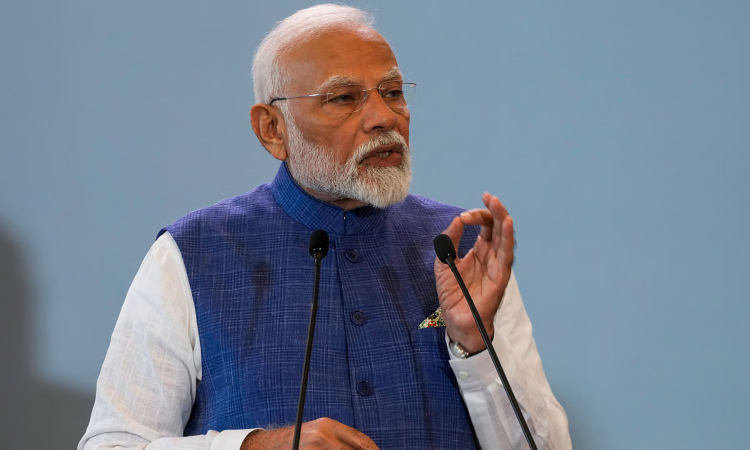Editorial: Diplomacy first, muscularity last
The seven delegations being sent to different geopolitical regions of the world have a multi-party composition with the odd diplomat or geopolitical expert thrown in.

Prime Minister Narendra Modi (PTI)
Nothing illustrates the criticism that the Narendra Modi Government thinks first and acts later than the move to send multi-party delegations, led mostly by opposition MPs, to foreign capitals to “project India’s national consensus and resolute approach to combating terrorism” in the wake of the recent military confrontation with Pakistan.
These foreign countries would have been more receptive to India’s case had this initiative been launched before the air strikes of May 7. Explaining India’s side of the story now, after the two countries came close to war and set off nuclear alarms around the world, makes this effort look like post-facto justification.
The seven delegations being sent to different geopolitical regions of the world have a multi-party composition with the odd diplomat or geopolitical expert thrown in. The most important of these delegations, the one to Washington, will be led by Congress MP Shashi Tharoor. Another important mission to the Arab world will have the Majlis Ittehadul Muslimeen leader Asaduddin Owaisi in it. The delegation to Egypt, Qatar and South Africa will have the services of Syed Akbaruddin, India’s former ambassador to the UN and a seasoned Qatar hand. The me-too disgraced former editor M J Akbar has been included in the delegation to the UK, where, the government may have felt, his old contacts in the British media would be useful.
Of course, it is imperative at this juncture for India to speak in one voice and the opposition MPs who have volunteered for this mission must be congratulated for putting aside their scepticism about the Modi government’s handling of the military strikes to help make a case for Pakistan’s terror proclivities to be sanctioned by the international community. In fact, more than the official spokesmen fielded by India to present its version of the recent events, more than even External Affairs Minister S Jaishankar and indeed Prime Minister Narendra Modi himself, it is Tharoor who has argued most coherently and effectively for India in his media appearances and geopolitical consultations since the May 7 strikes and their aftermath. The very fact that the government has decided to draw upon the expertise of the likes of Tharoor, Salman Khurshid, Manish Tewari, and Asaduddin Owaisi speaks of the doleful lack of talent within the BJP for a mission of this sort. Not to mention the sheer callousness of including Nishikant Dubey, an MP notorious for uttering anti-Muslim slurs in Parliament, in the delegation to Saudi Arabia, Kuwait, Bahrain and Algeria.
These multi-party missions follow the high tradition of Indian governments including opposition leaders in foreign policy initiatives to present a united profile to the world, especially when it comes to countering Pakistan’s designs to internationalise the Kashmir dispute. In 1994, the Narasimha Rao government asked Atal Bihari Vajpayee to lead the Indian delegation to the United Nations Human Rights Commission in Geneva when that institution was debating a resolution moved by the Organisation of Islamic Unity on alleged human rights violations in Kashmir. The delegation included Salman Khurshid, Farooq Abdullah, Hamid Ansari, and Manmohan Singh. Similarly, after the 26/11 terror attacks in Mumbai, the Manmohan Singh government sent out multi-party delegations to world capitals and succeeded in getting Pakistan included in the grey list of the anti-terror Financial Action Task Force without firing a shot across the border.
The Modi government would do well to learn the right lessons from these endeavours: it works best when diplomacy comes first, and muscularity last. When you put the horse behind the cart, it means you don’t know how it’s done.



